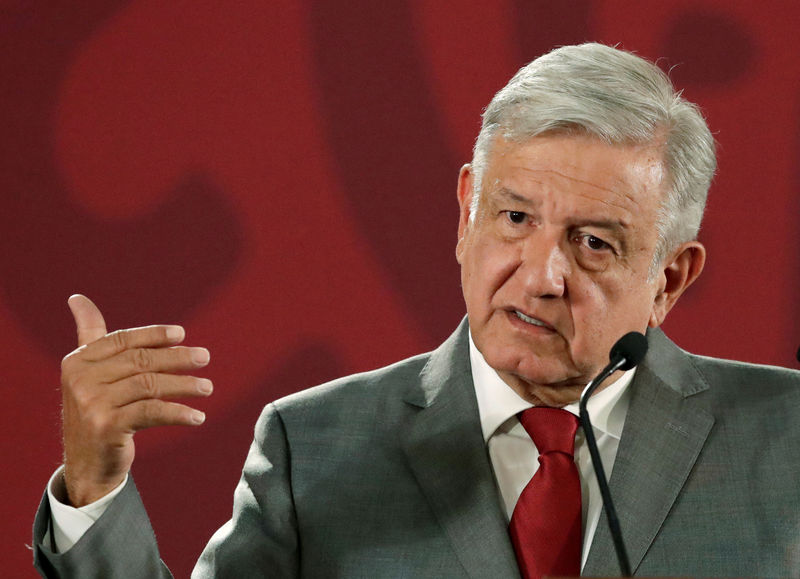MEXICO CITY (Reuters) - Mexican President Andres Manuel Lopez Obrador reiterated on Sunday the need for oil independence as his government said it would tender six construction contracts in June for a planned oil refinery in the southern state of Tabasco.
Tensions between Mexico and the United States have been running high in recent days after President Donald Trump threatened to impose punitive tariffs on Mexican goods unless Mexico halts a surge in illegal migration.
"We, our children and grandchildren aspire to live in a free, independent, sovereign country and we do not want to be a colony of any foreign country," Lopez Obrador told a cheering crowd at an event to mark the start of the refinery's construction.
"The most important thing at this moment in time is producing petroleum," he added, saying the country needed to work toward "energy self-sufficiency."
Much of Mexico's gasoline need is met by U.S. imports, and Lopez Obrador wants Mexico to be able to cover its own demand.
"We have, I repeat, a good relationship with the United States, and with all governments in the world, but we do not want to be exposed and therefore it's important that we are self-sufficient," the president added.
Lopez Obrador has used similar language in the past when talking about oil, but his comments were lent extra weight because of the recent flare-up in tensions with Trump.
At the event, he repeated his desire to have good relations with Trump, but was at pains to say that maintaining the friendship of the American people was of paramount importance.
Mexican Energy Minister Rocio Nahle said at the same event that Mexico would tender six contracts for the plan to build the country's first oil refinery in four decades.
"We will be tendering six construction contracts at the end of June so that all the parts that are under construction can start at the same time and we can finish the refinery in three years," she said, without giving more details.

Investors in highly indebted state oil company Pemex, which will build the refinery, have repeatedly expressed concern that the project would divert funds from the more profitable exploration and production business.